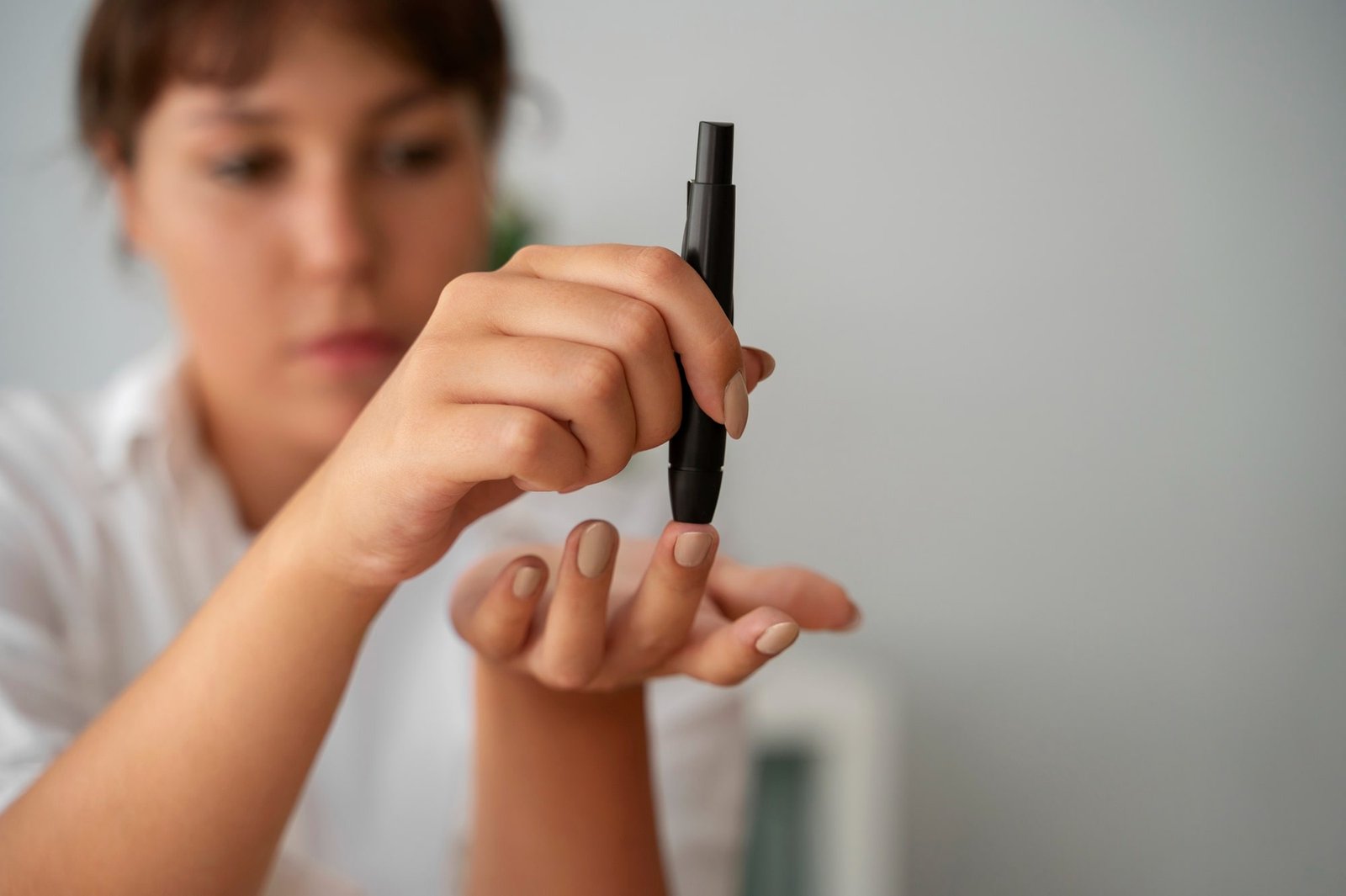What Are Insulin Spikes?
Insulin spikes occur when your body releases a surge of insulin in response to a sudden rise in blood sugar—usually after consuming high-carb or high-sugar foods. Insulin is a hormone produced by the pancreas that helps regulate blood sugar levels by moving glucose into your cells for energy.
While insulin is essential, frequent or extreme spikes can lead to energy crashes, weight gain, and over time, more serious issues like insulin resistance or type 2 diabetes.
Common Causes of Insulin Spikes
Insulin spikes can happen for a variety of reasons, but here are the most common:
Eating Refined Carbs and Sugary Foods
White bread, pastries, sugary drinks, and processed snacks cause a rapid rise in blood sugar, leading to an equally fast insulin response.
Overeating or Skipping Meals
Eating large portions in one sitting or going too long without food can disrupt your blood sugar balance, triggering a strong insulin reaction when you finally eat.
Poor Sleep and Chronic Stress
Lack of sleep and high cortisol levels from stress can reduce insulin sensitivity, forcing your body to release more insulin than usual to manage glucose.
Sedentary Lifestyle
Not moving enough after meals can prevent your muscles from using up glucose, keeping blood sugar levels higher and encouraging more insulin release.
Why Insulin Spikes Matter
Occasional spikes are normal, but frequent ones can disrupt your health in many ways:
- Energy crashes: You feel tired or sluggish soon after a meal.
- Weight gain: Especially around the belly, due to fat storage triggered by high insulin.
- Increased hunger: Insulin spikes can make you crave more sugar, creating a vicious cycle.
- Hormonal imbalances: Especially for women, high insulin levels can interfere with other hormones.
- Risk of insulin resistance: When cells stop responding to insulin effectively, blood sugar stays elevated—leading to prediabetes or diabetes.
How to Manage Insulin Spikes Naturally
Eat Balanced, Whole-Food Meals
Pair carbohydrates with fiber, protein, and healthy fats to slow down digestion and blood sugar rise.
Better choices include:
- Brown rice instead of white rice
- Whole fruit instead of fruit juice
- Adding avocado, nuts, or eggs to carb-heavy meals
Try the Veggie-First Method
Eat non-starchy vegetables (like leafy greens or cucumbers) before your carbs. This has been shown to reduce glucose spikes by slowing absorption.
Move After Eating
A simple 10–15 minute walk after meals helps your muscles use up glucose, reducing the need for insulin.
Use Natural Supplements (If Needed)
Some herbs and natural compounds can support healthy blood sugar levels:
- Cinnamon
- Berberine
- Apple cider vinegar
- Fenugreek
Always check with your doctor before starting supplements.
Prioritize Sleep and Stress Management
Deep sleep and relaxation techniques (like meditation, journaling, or breathwork) lower cortisol and improve insulin sensitivity over time.
Final Thoughts
Understanding insulin spikes gives you the power to take control of your energy, mood, and long-term health—naturally. You don’t need extreme diets or medications (unless advised by a doctor). With simple lifestyle changes like eating whole foods, moving more, and managing stress, you can keep your insulin levels in check and feel more balanced every day.

